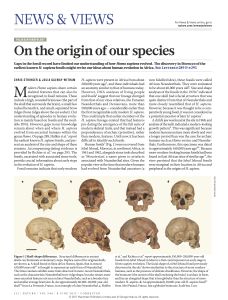
Article
On the Origin of Our Species
Gaps in the fossil record have limited our understanding of how Homo sapiens evolved. The discovery in Morocco of the earliest known H. sapiens fossils might revise our ideas about human evolution in Africa.
Nature,
2017
References:
Hublin et al. (2017)
,
Richter et al. (2017)
Recommendation
Chris Stringer and Julia Galway-Witham, researchers at the Natural History Museum in London, take you back to the very origin of our species, Homo sapiens. They provide a fascinating overview of fossil discoveries at Jebel Irhoud, Morocco. Scientists had misdated previous finds. State-of-the-art dating of new finds indicates that Jebel Irhoud fossils are older than previously thought, making them the oldest remains of H. sapiens reported. getAbstract recommends this article to anyone interested in learning how modern humans came to be.
Summary
About the Authors
Chris Stringer is a merit researcher and Julia Galway-Witham is a research assistant in the Department of Earth Sciences at the Natural History Museum in London.
By the same authors
Learners who read this summary also read
Book
Book
Book
Article
















Comment on this summary